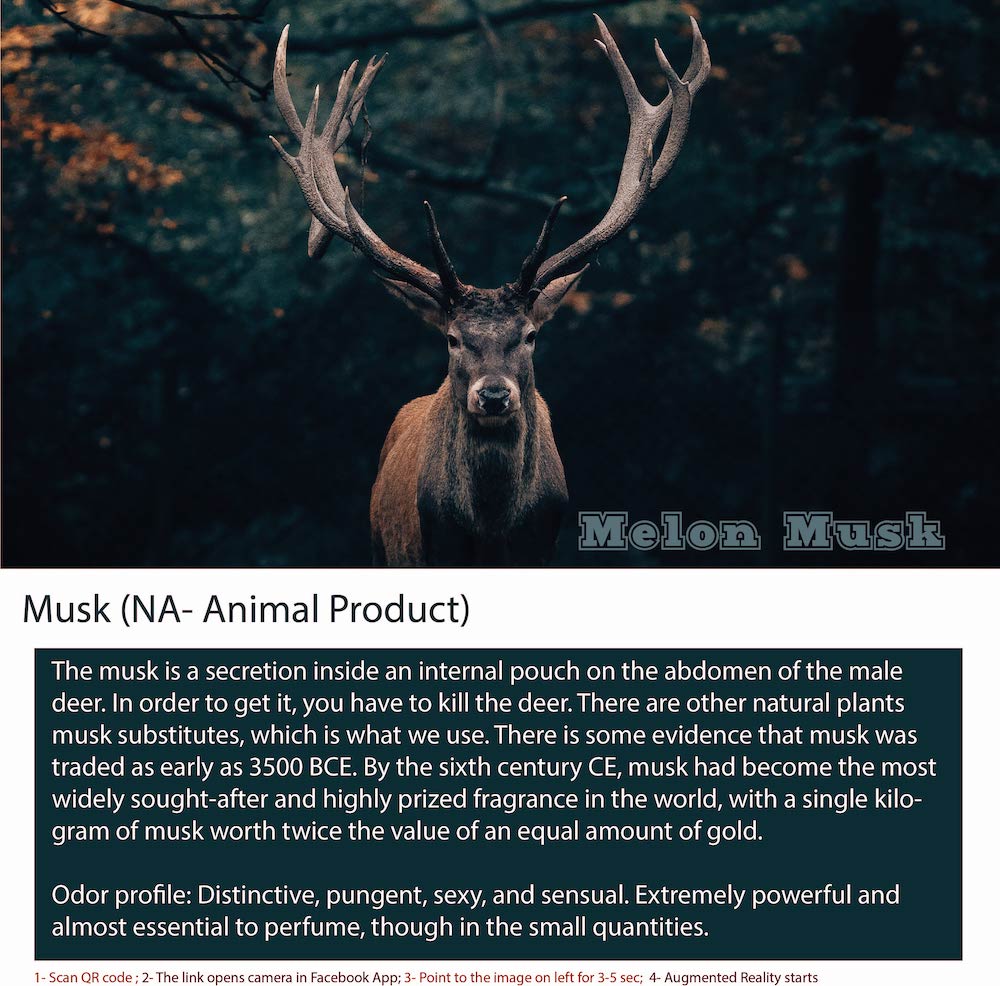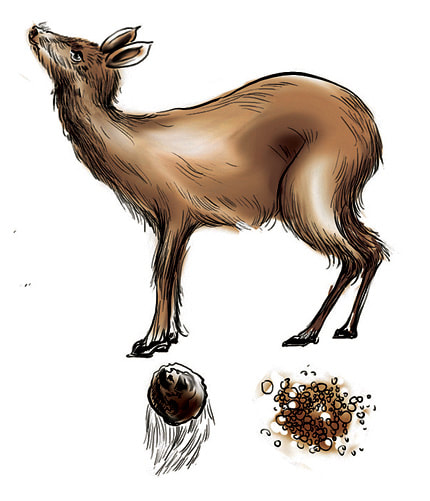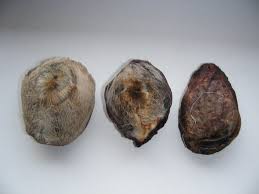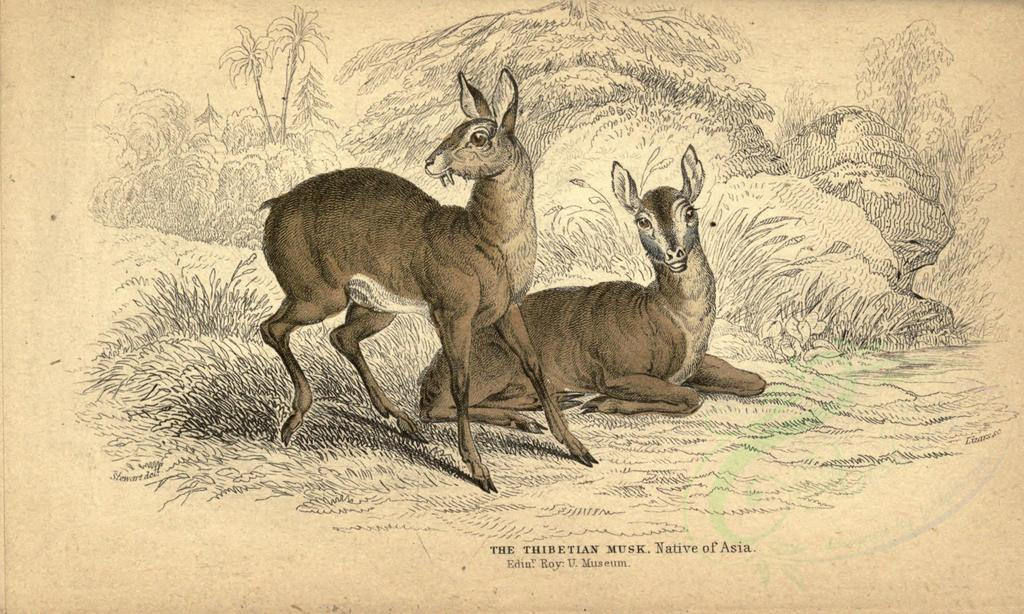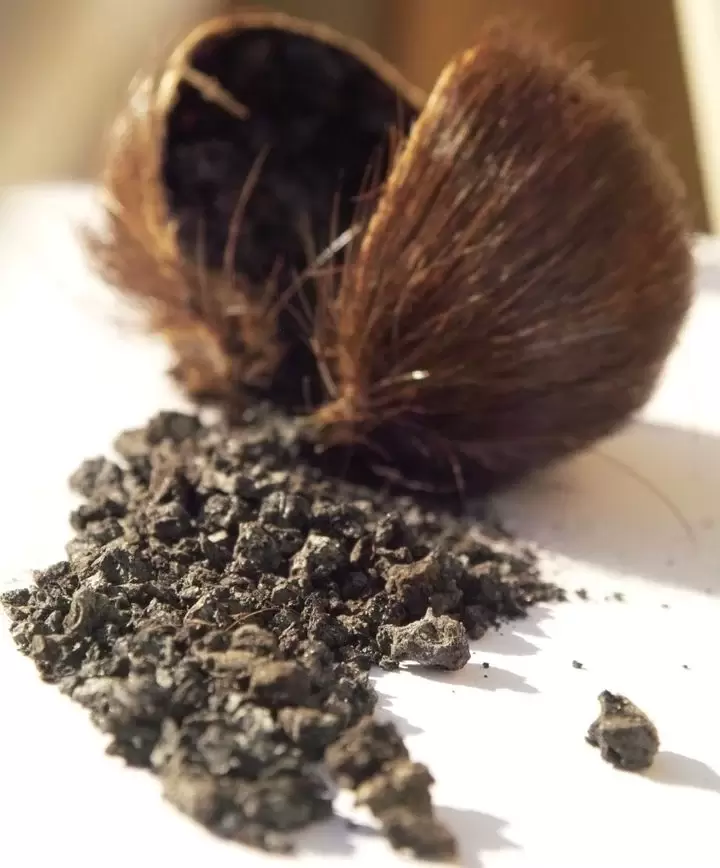Unveiling the Essence of Musk Oriental Scent at Scentopia
Musk: The Enigmatic and Alluring Essence
Introduction: Musk, with its enigmatic and captivating aroma, is a timeless and mysterious essence that has been cherished for centuries. This unique and rare fragrance, sourced from the musk deer and other natural and synthetic sources, has inspired perfumers, aromatherapists, and artists throughout history. From its presence in perfumes and therapeutic oils to its occasional use in traditional medicine and intriguing fun facts, musk remains a symbol of sensuality, luxury, and allure. This essay explores the captivating world of musk, encompassing its presence in perfumes, therapeutic oils, food, medicine, and uncovering some fascinating and fun facts about this alluring and fascinating essence.
Historical Significance and the Quest for Musk: Musk has a rich and storied history, dating back thousands of years. It was highly prized in ancient civilizations, such as those of China, India, and Egypt, where it was used as a luxurious fragrance and symbol of status. The quest for musk led to extensive trade routes and the exploration of distant lands. Musk was considered a treasure and was often used as an offering in religious ceremonies and as a key ingredient in incenses and perfumes.
Perfumes and Fragrance: Musk's unique and animalistic scent has made it a sought-after and iconic ingredient in the world of perfumery. Originally sourced from the musk deer's gland, it is now predominantly produced synthetically due to conservation concerns. Musk is often used as a base note in perfumes, adding depth, warmth, and sensuality to fragrance compositions. Its alluring and long-lasting aroma makes it a popular choice in high-end and niche perfumes.
Therapeutic Oils and Aromatherapy: Natural musk is not commonly used in aromatherapy due to ethical and sustainability reasons. However, certain essential oils like Ambrette Seed essential oil have a musky scent and are occasionally used in aromatherapy for their potential calming and aphrodisiac properties. Ambrette Seed oil, derived from the seeds of the hibiscus plant, is a botanical alternative to natural musk.
Culinary Uses and Medicinal Applications: Musk is not typically used in culinary creations or traditional medicine due to its rarity and expense. However, certain musk-scented spices, such as nutmeg, have culinary uses and are valued for their aromatic properties and flavor-enhancing qualities.
Fun and Crazy Facts:
Musk, with its enigmatic and captivating essence, remains an iconic and alluring fragrance that has fascinated humans for millennia. From its historical significance and quest for rare sources to its presence in perfumes and aromatherapy, musk continues to be a symbol of luxury, sensuality, and allure. While the use of natural musk is now regulated to protect the musk deer, synthetic musk has become a popular and ethical alternative in perfumery. As we appreciate the allure and fascination of musk, we are reminded of the timeless appeal of fragrance and the art of perfumery that connects us to our senses and emotions.
Introduction: Musk, with its enigmatic and captivating aroma, is a timeless and mysterious essence that has been cherished for centuries. This unique and rare fragrance, sourced from the musk deer and other natural and synthetic sources, has inspired perfumers, aromatherapists, and artists throughout history. From its presence in perfumes and therapeutic oils to its occasional use in traditional medicine and intriguing fun facts, musk remains a symbol of sensuality, luxury, and allure. This essay explores the captivating world of musk, encompassing its presence in perfumes, therapeutic oils, food, medicine, and uncovering some fascinating and fun facts about this alluring and fascinating essence.
Historical Significance and the Quest for Musk: Musk has a rich and storied history, dating back thousands of years. It was highly prized in ancient civilizations, such as those of China, India, and Egypt, where it was used as a luxurious fragrance and symbol of status. The quest for musk led to extensive trade routes and the exploration of distant lands. Musk was considered a treasure and was often used as an offering in religious ceremonies and as a key ingredient in incenses and perfumes.
Perfumes and Fragrance: Musk's unique and animalistic scent has made it a sought-after and iconic ingredient in the world of perfumery. Originally sourced from the musk deer's gland, it is now predominantly produced synthetically due to conservation concerns. Musk is often used as a base note in perfumes, adding depth, warmth, and sensuality to fragrance compositions. Its alluring and long-lasting aroma makes it a popular choice in high-end and niche perfumes.
Therapeutic Oils and Aromatherapy: Natural musk is not commonly used in aromatherapy due to ethical and sustainability reasons. However, certain essential oils like Ambrette Seed essential oil have a musky scent and are occasionally used in aromatherapy for their potential calming and aphrodisiac properties. Ambrette Seed oil, derived from the seeds of the hibiscus plant, is a botanical alternative to natural musk.
Culinary Uses and Medicinal Applications: Musk is not typically used in culinary creations or traditional medicine due to its rarity and expense. However, certain musk-scented spices, such as nutmeg, have culinary uses and are valued for their aromatic properties and flavor-enhancing qualities.
Fun and Crazy Facts:
- Musk Deer Conservation: Due to the overexploitation of musk deer for their glands, many species are endangered or critically endangered. The use of natural musk has been banned or regulated in various countries to protect these animals.
- Natural vs. Synthetic Musk: The majority of musk used in perfumery today is synthetic, developed through a combination of aromatic compounds to mimic the scent of natural musk. Synthetic musk has become popular due to ethical and environmental considerations.
- Historic Trade Routes: The quest for musk led to the establishment of the ancient Silk Road, which facilitated the trade of musk and other valuable goods between East and West.
- Medicinal Uses of Musk: In traditional Chinese medicine, musk was historically used as an ingredient in various remedies for its potential health benefits, including pain relief and anxiety reduction.
- Musk in Art and Literature: Musk has been a popular theme in art and literature, symbolizing sensuality, allure, and transcendence.
Musk, with its enigmatic and captivating essence, remains an iconic and alluring fragrance that has fascinated humans for millennia. From its historical significance and quest for rare sources to its presence in perfumes and aromatherapy, musk continues to be a symbol of luxury, sensuality, and allure. While the use of natural musk is now regulated to protect the musk deer, synthetic musk has become a popular and ethical alternative in perfumery. As we appreciate the allure and fascination of musk, we are reminded of the timeless appeal of fragrance and the art of perfumery that connects us to our senses and emotions.
To experience augmented reality, please open the Facebook-app using QR code and point to the image below
Delve into the Rich History of Musk Oriental Fragrances
Musk is a strong, animalistic scent that is used in perfumery as a base note. It is obtained from the glands of the male musk deer, as well as other animals such as muskrat and beaver. Historically, musk has been used in perfumery for thousands of years and was highly valued for its long-lasting and powerful scent.
The musk deer is now an endangered species, and the use of animal-derived musk in perfumery is now largely illegal. As a result, most musk used in perfumery today is synthetic, created by replicating the scent of natural musk using chemicals. Synthetic musk is used in a wide variety of perfumes, toiletries, and other scented products.
Musk is known for its strong, animalistic and slightly sweet smell, and it is often used as a base note in perfumes, as it helps to fix and prolong the longevity of other scents. It is also used to add depth and complexity to a fragrance, and it is often combined with floral, woody, and spicy notes.
Musk is also used in perfumes as a fixative, which helps to hold the fragrance and make it last longer on the skin.
The musk deer is now an endangered species, and the use of animal-derived musk in perfumery is now largely illegal. As a result, most musk used in perfumery today is synthetic, created by replicating the scent of natural musk using chemicals. Synthetic musk is used in a wide variety of perfumes, toiletries, and other scented products.
Musk is known for its strong, animalistic and slightly sweet smell, and it is often used as a base note in perfumes, as it helps to fix and prolong the longevity of other scents. It is also used to add depth and complexity to a fragrance, and it is often combined with floral, woody, and spicy notes.
Musk is also used in perfumes as a fixative, which helps to hold the fragrance and make it last longer on the skin.
Creating Unique Blends with Musk Oriental Notes
Musk has a long history in both perfumery and mythology.
In perfumery, musk has been used for thousands of years, and it was highly valued for its long-lasting and powerful scent. Ancient Egyptians used musk in their perfumes, and it was also used in perfumes and incense in ancient China and India. In the Middle Ages, musk was used in Europe as a perfume, as well as for medicinal purposes.
In mythology, musk has been associated with various gods and goddesses, and it was believed to have mystical and spiritual powers. In ancient Egypt, musk was associated with the god of fertility, Min, and it was believed to have aphrodisiac properties. In ancient China and India, musk was associated with the god of love, Kama, and it was believed to have the power to attract love and passion.
In many cultures, musk was also associated with royalty and nobility, and it was used to create perfumes and incense for royalty, as well as for religious ceremonies.
In modern times, musk is associated with sensuality, luxury, and elegance and is often used in perfumes and other scented products to create a powerful, long-lasting scent.
In perfumery, musk has been used for thousands of years, and it was highly valued for its long-lasting and powerful scent. Ancient Egyptians used musk in their perfumes, and it was also used in perfumes and incense in ancient China and India. In the Middle Ages, musk was used in Europe as a perfume, as well as for medicinal purposes.
In mythology, musk has been associated with various gods and goddesses, and it was believed to have mystical and spiritual powers. In ancient Egypt, musk was associated with the god of fertility, Min, and it was believed to have aphrodisiac properties. In ancient China and India, musk was associated with the god of love, Kama, and it was believed to have the power to attract love and passion.
In many cultures, musk was also associated with royalty and nobility, and it was used to create perfumes and incense for royalty, as well as for religious ceremonies.
In modern times, musk is associated with sensuality, luxury, and elegance and is often used in perfumes and other scented products to create a powerful, long-lasting scent.
Musk fun & crazy facts :
"Musk" as a term refers to a class of aromatic substances commonly used in perfumery and has been used for centuries in perfumery. Some fun and interesting facts about musk as a perfumery ingredient include:
"Musk" as a term refers to a class of aromatic substances commonly used in perfumery and has been used for centuries in perfumery. Some fun and interesting facts about musk as a perfumery ingredient include:
- Musk was originally obtained from the glands of the musk deer, but today it is mostly synthesized in laboratories.
- Musk has a strong and distinctive scent that is said to be sensual and alluring.
- Musk is used as a fixative in perfumery, which means it helps to prolong the life of a scent by slowing down the evaporation of its other ingredients.
- Musk is one of the oldest known perfume ingredients, having been used by the ancient Egyptians, Greeks, and Romans.
- Musk has been used medicinally throughout history, and is said to have aphrodisiac properties.
- Some perfumes are still made with animal-derived musk, but most perfumes on the market today use synthetic musk.
Enhance Your Scent Journey with Musk Oriental Notes
Musk is an animalistic and earthy scent that is often used as a base note in perfumery. It is said to have a strong and distinctive odour that is often described as sensual, alluring, and musky. The musk scent is often described as woody, earthy, and animalistic, with a hint of sweetness.
Traditionally, musk was obtained from the glands of the musk deer, but today, it is mostly synthesized in laboratories. The musk scent is used to fix the other ingredients of a perfume, it means it helps to prolong the life of a scent by slowing down the evaporation of its other ingredients.
Musk can also be used in perfumes as a fixative to enhance the longevity of the fragrance. Musk is an important ingredient in many perfumes, and it is considered one of the oldest known perfume ingredients, having been used by the ancient Egyptians, Greeks, and Romans.
Traditionally, musk was obtained from the glands of the musk deer, but today, it is mostly synthesized in laboratories. The musk scent is used to fix the other ingredients of a perfume, it means it helps to prolong the life of a scent by slowing down the evaporation of its other ingredients.
Musk can also be used in perfumes as a fixative to enhance the longevity of the fragrance. Musk is an important ingredient in many perfumes, and it is considered one of the oldest known perfume ingredients, having been used by the ancient Egyptians, Greeks, and Romans.
Exploring the Aromatic Palette of Musk in Fragrances
There are many perfumes that feature musk as a key ingredient. Some famous perfumes that include musk as an ingredient include:
- Chanel No. 5 - this iconic perfume is said to have a musky base note that helps to balance out the floral top notes.
- J'adore by Dior - this popular fragrance has a musky base note that helps to support the floral middle and top notes.
- Angel by Thierry Mugler - this perfume has a strong musk base note that gives it a unique and long-lasting scent.
- Obsession by Calvin Klein - this perfume is known for its strong musk scent that is balanced out by notes of lavender and spices.
- Musc Nomade by Le Labo - This fragrance is a musk-based scent with a blend of floral, woody and spicy notes
- Musk by Kiehl's - This is a classic musk scent that is known for its strong, distinct musk aroma.
- White Musk by The Body Shop - This perfume has a clean and fresh musk scent that is suitable for both men and women.
- Musc Ravageur by Frederic Malle - This fragrance is a musk-based scent with a blend of spicy, sweet and musky notes.
- Musc Eau de Parfum by L'Artisan Parfumeur - This perfume has a strong musk scent that is balanced out by floral and woody notes.
- Black Musk by Montale - This perfume has a strong musk scent with a hint of vanilla and patchouli.
- Musk for Men by Azzaro - This fragrance is a musk-based scent with a blend of woody and spicy notes.
- Musc Intense by Mancera - This perfume has a strong musk scent with a hint of rose and jasmine.
- Musk by Alyssa Ashley - This perfume has a strong musk scent with a hint of vanilla and patchouli.
- Musk by Jovan - This fragrance is a musk-based scent with a blend of woody and spicy notes.
- Musk by Lush - This perfume has a clean, fresh musk scent with a hint of lavender and lemon.
Join Scentopia, Sentosa's latest tourist attraction wonderful orchid scent crafting, fragrance tour, bridal shower or corporate team building which includes perfume making onsite and offsite, beach activities and more. We also serve primary school learning journey, secondary students and pupil on industrial excursions. Know more about our orchids perfume bar or therapeutic orchid scents and other wellness aromas. Conatct Perfume workshop or book a scent crafting session here.

